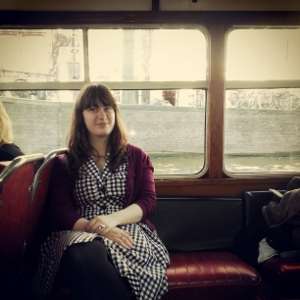Ravel is one of those composers who seem to slip through the cracks sometimes. I myself am guilty of letting this happen – I know that I like Ravel’s music but often forget how magical it really is. After tonight’s concert, however, I am sure that I’ll never forget this again. The Rotterdam Philharmonic delivered a sensual and exciting Ravel under the baton of principal conductor (and Ravel enthusiast) Yannick Nézet-Séguin.
Starting off with the song cycle Shéhérazade, the orchestra was joined by singer Anna Caterina Antonacci. Shéhérazade consists of three songs: ‘Asie’, ‘La flute enchantée’ and ‘L’indifférent’, all based on poems by Tristan Klingsor. Of course, the title ‘Shéhérazade’ refers to the storyteller of One Thousand and One Nights, and the piece has the middle-eastern flair that you would expect. But it is not a predictable work in any way.
The first movement, ‘Asie’ is by far the longest, coming in at just under 10 minutes. It tells of someone wanting to travel to Asia, to experience life there, albeit with some rather stereotypical descriptions (‘Je voudrais voir d'âpres marchands aux regards louches, Et des cadis, et des vizirs, Qui du seul mouvement de leur doigt qui se penche, Accordent vie ou mort au gré de leur désir’). The music accompanies the words beautifully, adding sensuality and longing, with gorgeous orchestral colours. Anna Caterina Antonacci is not only a singer with an incredibly beautiful voice and an impressive stage presence, but her articulation enabled the listeners to understand every single word she sang. For poems like the Shéhérazade this adds so much to the experience. The Rotterdam Philharmonic played the Shéhérazade which much passion and left me wanting for more: it is such a short piece, surely they could have played it twice!
Daphnis et Chloé is a ballet Ravel wrote for the renowned Ballets Russes in 1912. He made two symphonic suites out of the work, the second of which is more often performed: but tonight we were treated to the whole ballet. Of course, the Ballets Russes famously commissioned Stravinsky’s Firebird, Petrushka and Rite of Spring, but after hearing Daphnis et Chloé by the Rotterdam Philharmonic, I can honestly say that it is without a doubt in the same league as the Stravinsky ballets.
The ballet tells a story of Daphnis and Chloé that involves pirates, the god Pan and other suitors to Chloé, but what it boils down to is that is a simply story of a boy (Daphnis) and a girl (Chloé) who fall in love. One of the most prominent instruments in the piece is the flute (particularly the alto flute), which adds a fairytale-like element to the music. Indeed, Yannick had explained in a video about the concert that it is the flute that connects the two Ravel pieces played tonight. In Shéhérazade the flute plays an essential role, particularly in the second song (as its title, ‘La flûte enchantée’, would suggest), and in Daphnis et Chloé it is again the flutes that are perhaps most important to the general feel of the music.
The second part of Daphnis et Chloé was incredibly exciting, the ‘Danse guerrière’ made my heart go a million times faster with excitement and surprise. It is a mad dance that the Rotterdam Philharmonic brought with such force and energy that it took me a while to recuperate. The following ‘Danse suppliante de Chloé’ is somewhat more subtle and even sensual, but with rather a sad overtone. Part 3 starts with the famous ‘Lever du jour’ (daybreak), which depicts a new day, a new beginning. The ballet’s final scene, ‘Danse Générale’ truly sounded like a celebration and an ending, a most satisfying one at that.
All in all this was one of the most exciting concert I’d been to in a while. Yannick always seems get the absolute best out of his orchestra, not only as far as energy and enthusiasm are concerned, but he seems to get the orchestra to feel the music in their toes, and this is transferred to the audience by their amazing and passionate playing.


